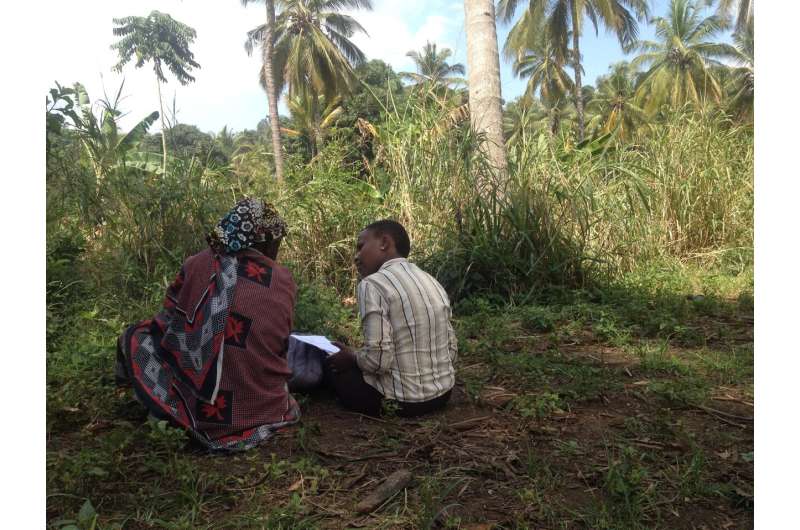Improved maize yields in Tanzania

Given the extra cost, it's understandable that Tanzanian farmers living below the poverty level may be both unable and unwilling to invest in chemical fertilizers to address soil deficiencies. But research from a multidisciplinary team shows that low-cost soil tests and the targeted use of small amounts of the right fertilizers can have a noteworthy impact on farm productivity and profit and significantly improve the yield of maize, the staple food for most Tanzanians.
The researchers, including Aurélie Harou, assistant professor in McGill University's Department of Natural Resources Sciences, tested the soil of more than 1,000 plots of land in 50 villages in the Morogoro region, an area with good agricultural potential but low yields of maize. They found that nearly every plot in the study was deficient in sulfur, which is critical for achieving the highest maize yields. The fertilizers the farmers use are, in general, not the ones that are needed to get the best crop response and sulfur is not included in current regional or national fertilizer recommendations from the Government of Tanzania.
The study found that plot-specific fertilizer recommendations based on on-site soil tests, paired with subsidies to purchase fertilizer, can improve farm productivity and profits. Farmers who only received a subsidy but no fertilizer recommendations increased their use of fertilizer, but did not see improved maize yields, since the fertilizer they used did not address soil deficiencies. Farmers who received fertilizer recommendations but no subsidy used no fertilizer because they were unable to cover the cost. There was no increase in greenhouse gas emissions or leaching during the study, and the risk of any environmental damage going forward is extremely low, according to the researchers.
"The joint effects of information and financing constraints on technology adoption: Evidence from a field experiment in rural Tanzania" by Aurélie P. Harou et al is published in the Journal of Development Economics.
More information: Aurélie P. Harou et al, The joint effects of information and financing constraints on technology adoption: Evidence from a field experiment in rural Tanzania, Journal of Development Economics (2021). DOI: 10.1016/j.jdeveco.2021.102707
Provided by McGill University





















